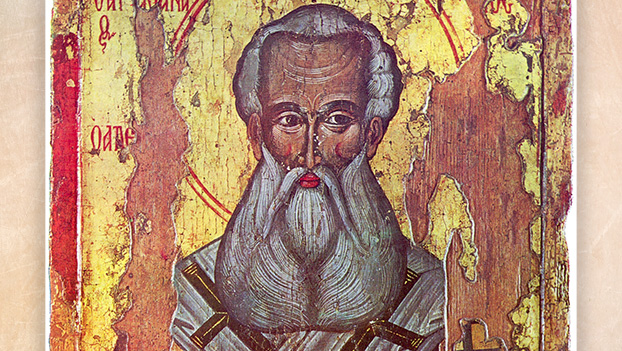By: Jason Songe, Seminarian, New Orleans
Today is the memorial of St. Athanasius of Alexandria(c. 296-373). He is one of the four great Doctors of the Eastern Church.
“He ardently defended and clearly articulated the full divinity of the son of God,” said Thomas G. Weinandy in his book Athanasius: A Theological Introduction. For this “he was exiled five times. 335-37, 339-46, 356-62, 362-64, and 365-66.”
But, back to the beginning.
“He attended The Council of Nicea in May-July of 325 as a young deacon with Alexander, Bishop of Alexandria, acting as his personal secretary,” Weinandy said. Arius, a priest from Alexandria, was “condemned by the Council for denying the full divinity of Christ.” But, he soon returned on the scene. And though Constantine supported Arius, Athanasius would not change his position.
In the preface to his translation of Contra Gentes and De Incarnatione, an early work of Athanasius, Robert W. Thomson said, “Athanasius adhered firmly to a policy of no co-operation when, for the sake of peace, the imperial authorities were prepared to compromise on what he believed to be principles of faith. He was violent and fiery and quick to brand his opponents as enemies of God, yet willing to overlook differences of language where the essential was agreed. He showed a deep concern for the spiritual development of his flock.”
Weindandy agrees: “People loved him because he would not compromise the truth of the Gospel in an attempt to found a false peace and an illusory fellowship based upon falsehood. They admired his forthrightness, courage, and untiring labour in defending and articulating the mysteries of the faith.”
So, he was elected Bishop of Alexandria on April 17, 328.
Thomson says Athanasius “had a profound grasp of scriptural exegesis” and according to Weinandy, “Athanasius opposed Arius, and those who held similar positions, precisely because he was convinced that they interpreted scripture apart from the ecclesial tradition. In his mind the controversies in which he was engaged throughout his life were controversies over the proper understanding and interpretation of the Bible. The Bible was first and foremost the Church’s book and as such it was the church who authentically and authoritatively interpreted it.”
Thomson says that Athanasius did so well against Arius that he forevermore had an “almost mythical reputation as the champion of Nicaea and the sole obstacle to an Arian empire.”
Weinandy relays that Athanasius believed “scripture itself contains later doctrines. The doctrines are already and always there within Scripture, and they, over the course of years and centuries, through theological study, liturgical practice and, pre-eminently, controversies in which biblical truths are denied, are more clearly conceived, more fittingly defended and more unmistakably articulated.”
Weinandy says that Athanasius was also important for his Christology. “He was not merely the precursor of Cyril’s, Ephesus’ and Chalcedon’s Christology, it also became the basis for all subsequent Christology. Everything he teaches and upholds is motivated and driven by his desire to ensure that the Christian Gospel of salvation is upheld. He was extolled through the centuries as a holy and selfless man of steadfast and fearless faith, of long suffering patience, and of zealous passion for the truth of the Gospel,” Weinandy said.
In the last century critics have arisen and accused Athanasius of being sinister and self-promoting.
“The fact that he ultimately bested his opponents in no way implies that Athanasius was more malevolent than they,” Weinandy says. “Such a victory could simply mean that the Gospel found a worthy defender in Athanasius and that the Holy Spirit ensured that he and the truth that he proclaimed would prevail.”
About the Author: Jason Songe, Seminarian, New Orleans
Jason is a seminarian in First Theology.
Disclaimer
All opinions published by the authors on this blog are solely those of the authors. Although the goal is that they should, they do not necessarily express the views and opinions of the Archdiocese of New Orleans, Notre Dame Seminary, the Church, or their respective dioceses and bishops.
Notre Dame Seminary and the Archdiocese of New Orleans are not responsible for the comments of commenters, although every effort will be made to remove offensive comments.
If you should find an error or offensive content, please email the NDS Blog editorial team.

